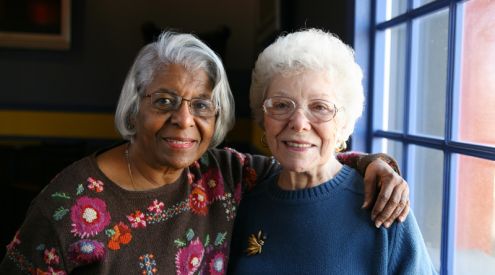
- Our studies
- Our research
- Publications and resources
- Data access and training
- About
- News
- Events
- Get in touch
- Join our mailing list

Research using longitudinal data is able to provide invaluable insights into how as a society we can work together to improve our quality of life. This research project included an analysis of how wellbeing and mental health have changed across generations and an analysis of how national and local policies contribute to child wellbeing.
| Project title | What works for wellbeing cross-cutting capabilities evidence programme |
|---|---|
| Project lead | Alissa Goodman |
| Themes | Mental health and wellbeing |
| Dates | June 2015 – June 2018 |
| Funder | ESRC |
| Summary |


Phone: 020 7612 6231
Email: alissa.goodman@ucl.ac.uk
Alissa Goodman is Professor of Economics, Director of the Centre for Longitudinal Studies, and Co-Director of the Early Life Cohort Feasibility Study, a project funded by ESRC to test the feasibility of a new birth cohort for the UK. She is a Co-Investigator on two further new national cohort projects, Children of the 2020s and the COVID Social Mobility & Opportunities Study. Alissa joined CLS in 2013 as PI of the 1958 National Child Development Study, having previously worked at the Institute for Fiscal Studies, where she served as its Deputy Director (2006-2012), and Director of its Education and Skills research sector.
Alissa’s main research interests relate to inequality, poverty, education policy, and the intergenerational transmission of health and wellbeing. Alissa was awarded a CBE for services to social science in 2021.
Phone: 020 7331 5129
Email: E.Fitzsimons@ucl.ac.uk
Emla is the Director of the UK Millennium Cohort Study, a longitudinal birth cohort study following children born at the turn of the new century. Her research is focused on the development of human capital throughout the life course, and in particular how experiences and circumstances in early life and childhood affect causally the acquisition of skills later on.
Phone: 020 7612 6051
Email: p.patalay@ucl.ac.uk
Praveetha’s main areas of research interest relate to investigating the development and antecedents of mental health (both ill-health and wellbeing) and their consequences through the lifecourse.
Phone: 020 7612 6107
Email: g.ploubidis@ucl.ac.uk
George is Professor of Population Health and Statistics at the UCL Social Research Institute and currently holds the posts of Principal Investigator of the National Child Development Study and 1970 British Cohort Study at the Centre for Longitudinal Studies. Prior to joining UCL he held posts at the London School of Hygiene and Tropical Medicine and the University of Cambridge. George is a multidisciplinary quantitative social scientist and a longitudinal population surveys methodologist. His main research interests relate to socioeconomic and demographic determinants of health over the life course and the mechanisms that underlie generational differences in health and mortality. His methodological work in longitudinal surveys focusses on applications for handling missing data, causal inference and measurement error.
Following the lives of 17,000 people born in a single week in 1958 in Great Britain.
Following the lives of 17,000 people born in a single week in 1970 in Great Britain.
The most recent of Britain's cohort studies, following 19,000 young people born in the UK at the start of the new century.